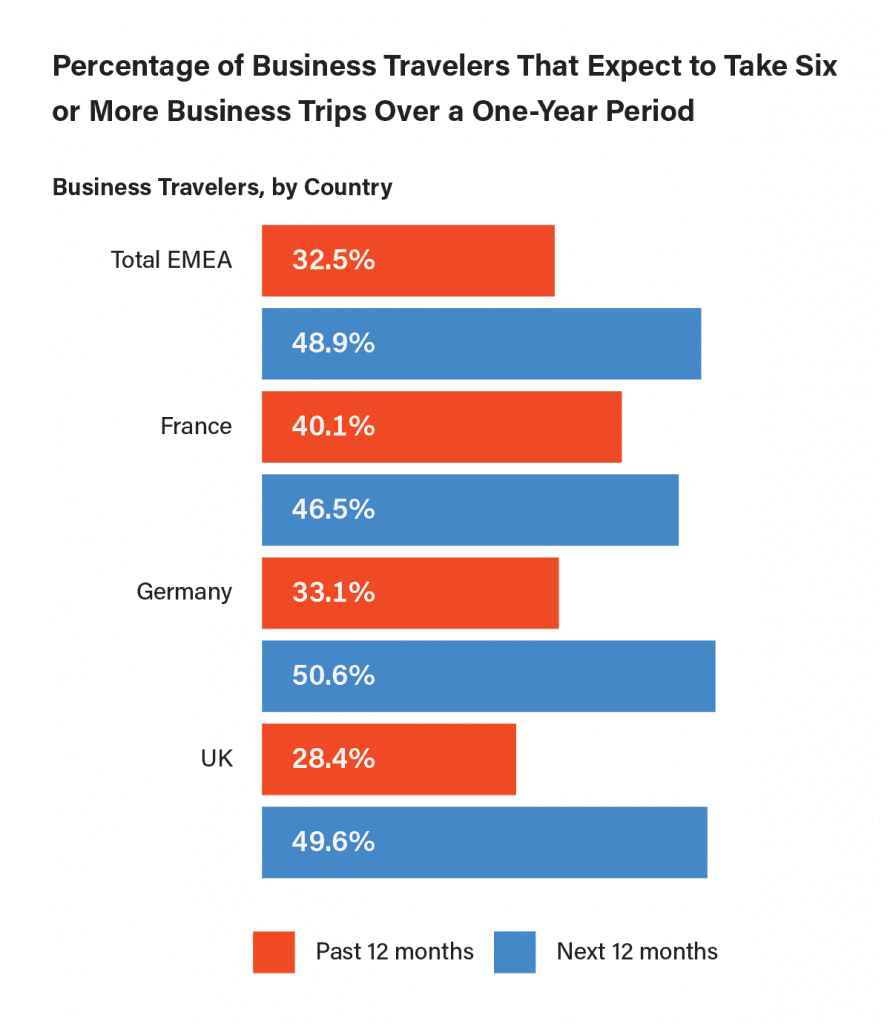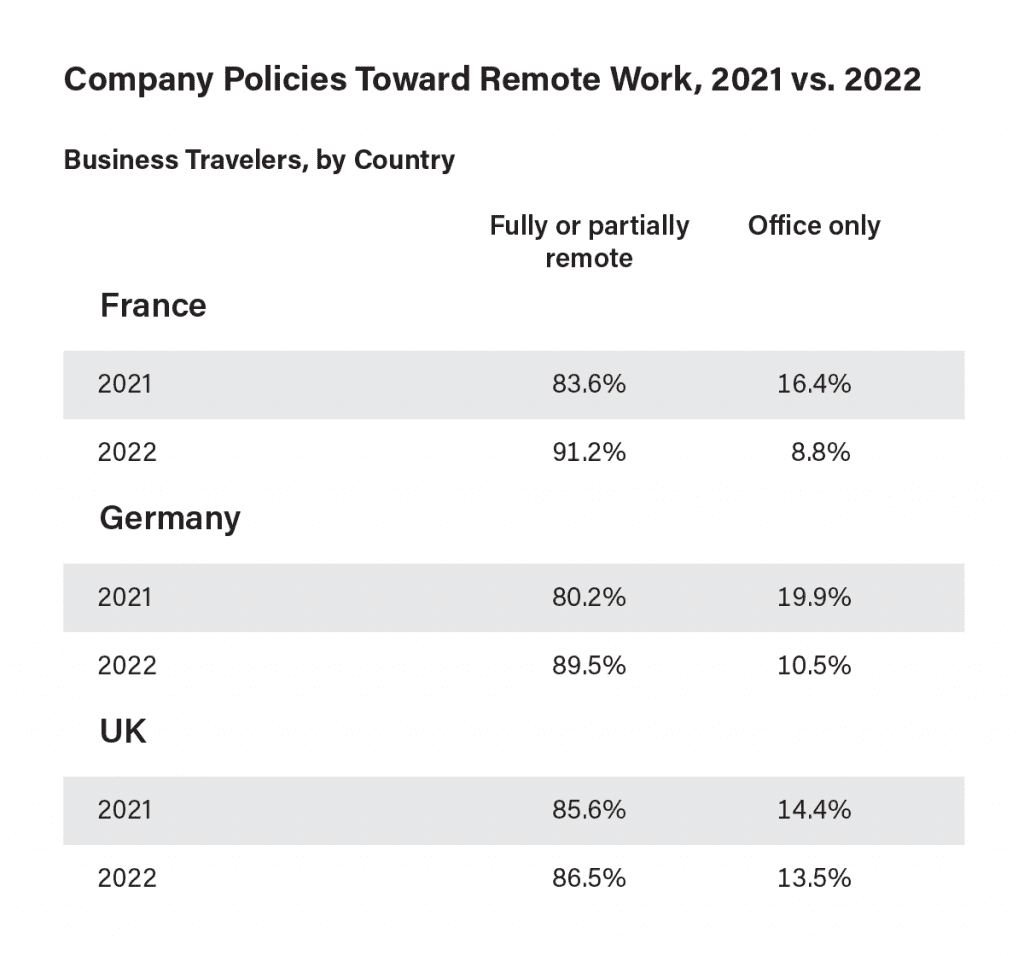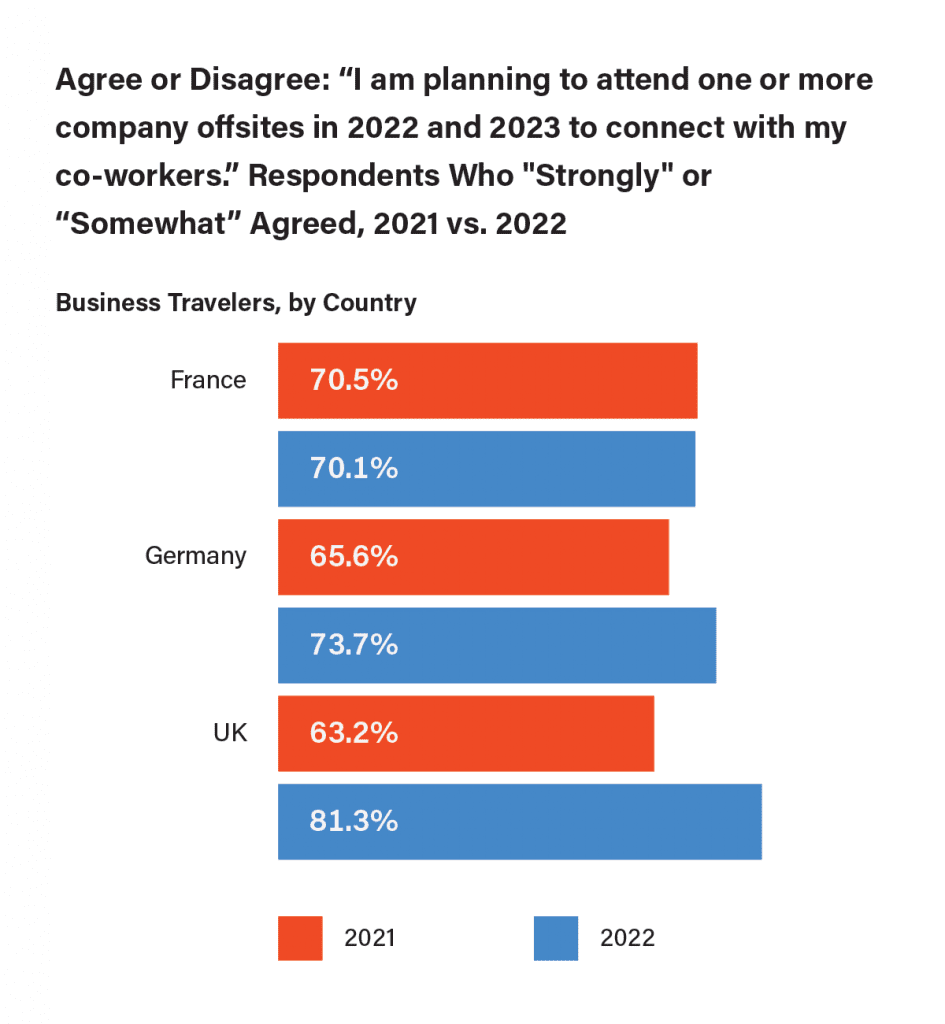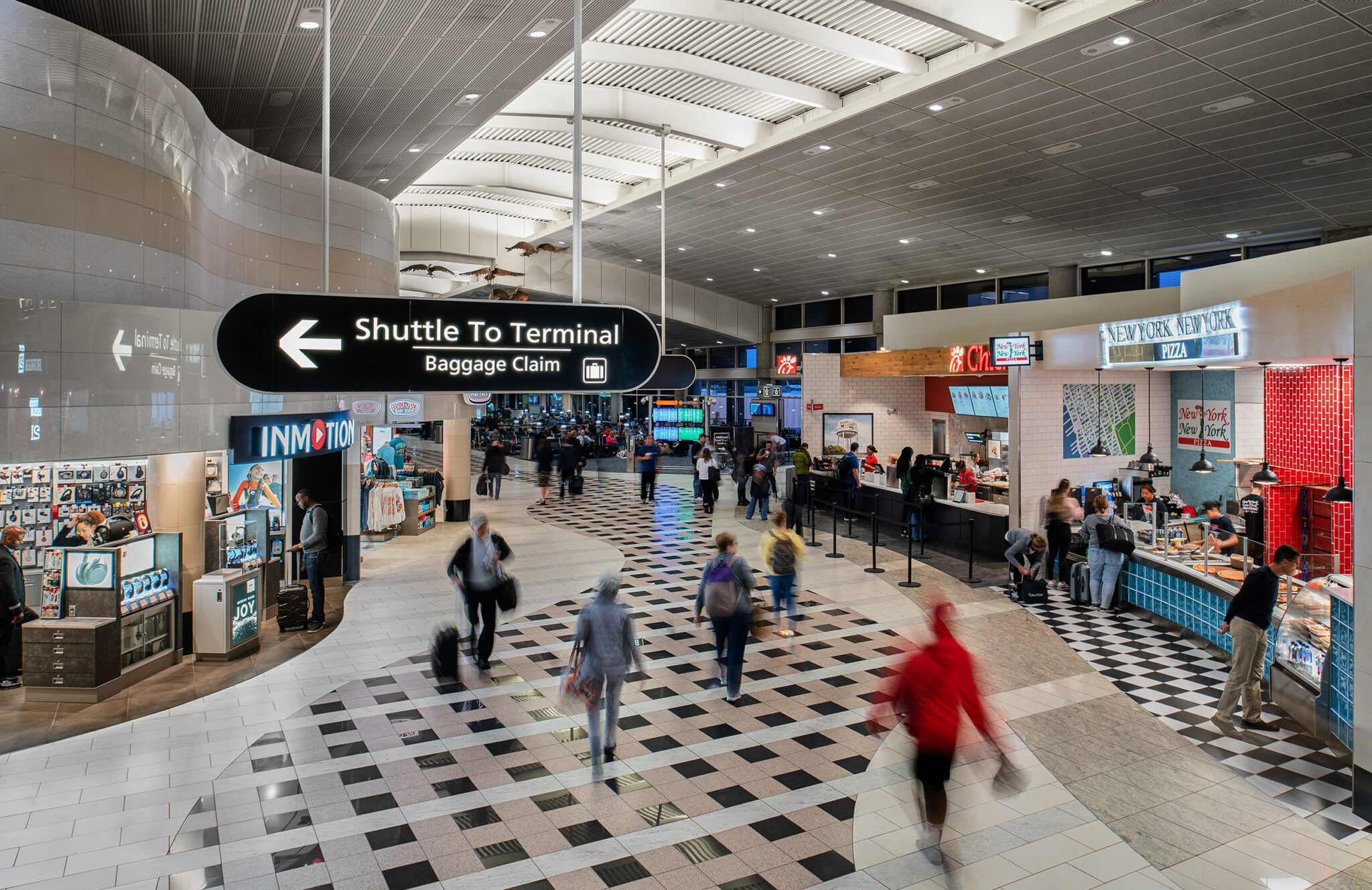Corporate Travel Trends in Europe Lead to New Demands from Business Travelers

Skift Take
After lagging the post-pandemic explosion in leisure travel demand that started with initial vaccine rollouts in 2021, corporate travel took off in 2022 and is expected to grow considerably in 2023. Business travelers themselves are driving much of this demand, keen to connect with clients, reconnect with co-workers, and attend in-person events and conferences that they’ve missed during the past three years.
The environment surrounding that eagerness to return to the road is evolving quickly. Companies across Europe have been reevaluating corporate travel policies and implementing new expense technologies as they adjust to changing economic and workforce conditions.
“The past few years have seen so many major issues crop up in rapid succession: traveler safety, remote work, the ‘Great Resignation,’ inflation,” said Michael Riegel, general manager, EMEA, TripActions. “This ping-ponging really accelerated the need for integrating and automating systems, especially when it comes to corporate travel and expense.”
These changes are bringing positive momentum to the travel, expense, and payment landscape. Supported by data from Skift and TripActions’ recent survey of nearly 800 business travelers in EMEA — primarily located in France, Germany, and the UK — this article will explore how more frequent travel is creating more complex expense and payment demands, and how travelers can benefit from simplified all-in-one solutions that allow them to focus on getting the most out of their trips — in turn driving productivity, trust, and satisfaction.
Further reading on this topic and more research across global markets may be found in Skift and TripActions’ recent report, “The State of Corporate Travel and Expense 2023: New Priorities, New Opportunities”.
The Return of Business Travel and the Impact of Remote Work
The pick-up in business travel across Europe is clear. According to Skift and TripActions data, nearly half (48.9 percent) of travelers said they’d take six or more business trips in the next 12 months, compared to just 32.5 percent who said they took at least six trips in the previous 12 months.
In Germany and the UK, this gap was even wider, likely influenced by the fact that about 75 percent of business travelers in both countries either “strongly” or “somewhat” agreed with the statement that meeting in person is “always” more effective than meeting virtually to get work done.

Removal of Covid-19 travel restrictions has been a driving force behind workers’ mass return to the road, but there are other forces at play as well. In particular, the rise in remote work is contributing to an additional surge in work-related travel that did not exist as a widespread trend prior to the pandemic.
Overall, the prevalence of business travelers that are working remotely has increased from what they initially expected in the post-pandemic work environment. Nearly 90 percent of business travelers across EMEA told Skift and TripActions that they were working remotely at least part of the time.
In France, over 91 percent of workers said they were now at least partially remote, up from 83.6 percent who responded to the 2021 Skift and TripActions survey saying they expected to be remote once post-pandemic policies became permanent. In Germany, there was a 9.3-percentage point difference between what business travelers expected in 2021 and what is actually happening in 2022.

Less face-to-face interaction on a day-to-day basis is leading to more travel. Overall, about 63 percent of business travelers said they would travel more in 2022 and 2023 to make up for fewer in-person meetings due to remote work. In Germany, that figure reached nearly 70 percent.
Meanwhile, travel for the explicit purpose of attending company offsites that bring together coworkers outside of regular business meetings is on the rise as well. About 75 percent of business travelers across EMEA said that they either “strongly” or “somewhat” agreed they were planning to attend one or more company offsites in the next year. In the UK, that figure increased from 63.2 percent in 2021 to 81.3 percent in 2022, and in Germany, from 65.6 percent to 73.7 percent.

“The big change that remote work has brought to business travel has been a shift to more retreats and team meetings, and TripActions has been all over this trend with our team travel feature, which allows for easy group bookings,” said Riegel. “It’s important because you have team members who perhaps didn’t travel much — or at all — a few years ago. So being able to enable them quickly and easily is key. They need an easy-to-use tool to book travel, corporate cards that admins can customize policy for, and a way to submit receipts that doesn’t bog them or the accounting teams down.“
Travel Changes Drive New Expense and Payment Trends
Alongside higher volume, different kinds of business trips, and the logistics behind planning and organizing those trips, new types of travel means new kinds of expenses. According to Skift and TripActions’ data, 45 percent of corporate travel and finance managers said their companies have made permanent changes to their travel policies in the past two years, and another 35 percent have enacted temporary changes in that time frame. On top of that, 35 percent also said they were allowing more types of expenses.
All of this is good news for employees, as companies are proactively updating the way they look at business travel in an evolving environment. However, both travelers and managers have to remain cognizant of the challenges that come along with those changes.
As one example, given the current economic conditions, travelers that pay for travel with personal funds may be concerned about how quickly and efficiently they will receive reimbursement. About 23 percent of respondents to the Skift and TripActions survey said that paying for expenses on a personal card was one of their top three concerns while traveling for work.
“One big concern for employees is paying expenses with personal funds and wondering how long it will take to be reimbursed, and when a company is processing expenses manually, it can be a long wait,” said Tim Russo, senior director, fintech partnerships and business development, TripActions.
Nearly half of business travelers in Europe said they use their personal cards for expenses when they’re traveling for work. In the UK, that figure is nearly 55 percent. In Germany, in addition to about 43 percent of travelers using personal credit cards, 35 percent also use cash, check, or money order. While the prevalence of cash usage was much lower in other markets — about 22 percent in the UK and 18 percent in France — any incremental need for reimbursement can put stress on the employee as well as finance and accounting.
As policies shift, there’s a growing need to ensure solutions can manage real-time issues like this. In the past, companies have used separate corporate travel, expense, and payment solutions. Toggling between three different tools, with three sets of customer service, and perhaps three internal contacts, there’s room for error or miscommunication.
Consolidating these solutions into one system that’s easy to use for the employee and easy to update dynamically on the back-end encourages better compliance, drives greater efficiency, reduces costs, and increases employee satisfaction.
“[Combining solutions] really allowed us to be more modern, and I really think it allowed us to change our culture as well,” said Robin Bell, senior manager of procurement with Epicor. “Part of what I think attributed to the culture shift was giving that trust back to the employees so they’re empowered to make the right choices on behalf of the company and customers.”
For further reading on this topic and more research across global markets, please download Skift and TripActions’ recent report, “The State of Corporate Travel and Expense 2023: New Priorities, New Opportunities”.
This content was created collaboratively by TripActions and Skift’s branded content studio, SkiftX.





